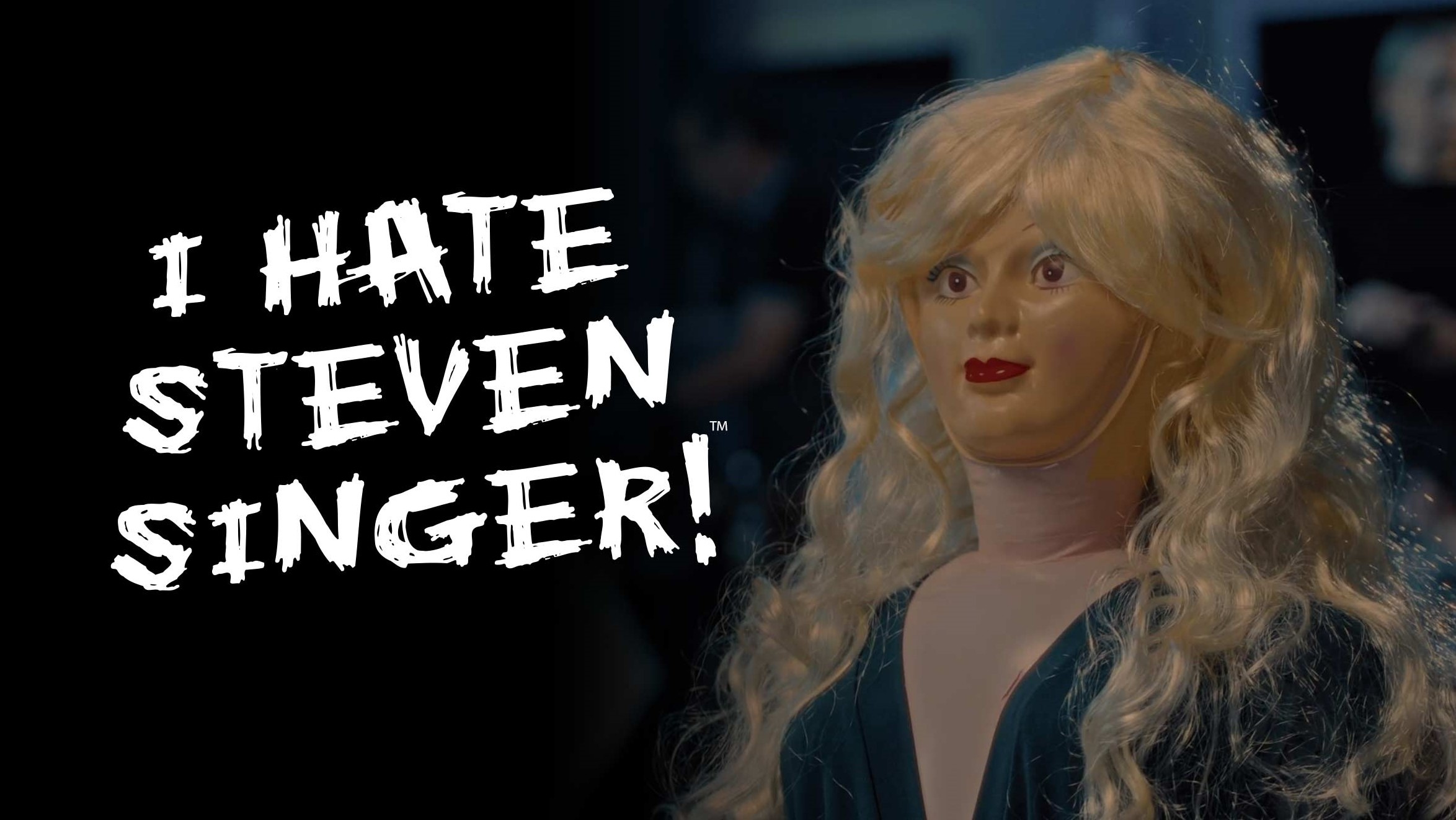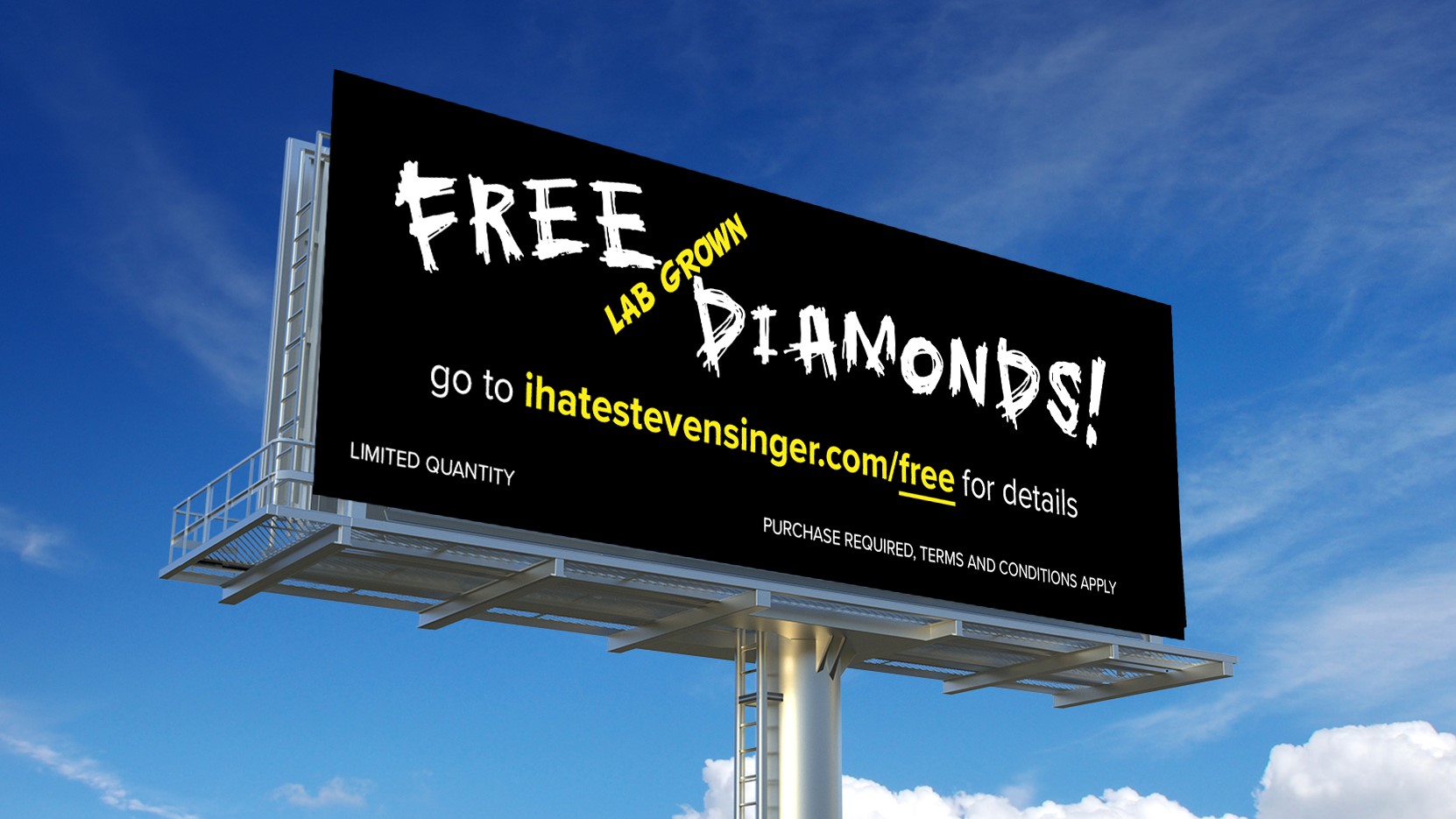Rivals Will Hate New Commercials From Steven Singer Jewelers
Retailer shifting more spending towards TV

The smarter way to stay on top of broadcasting and cable industry. Sign up below
You are now subscribed
Your newsletter sign-up was successful
A new television campaign is another reason for rival jewelers to hate Steven Singer.
Singer, the Philadelphia retailer who has become a national brand thanks in part to Howard Stern, will be running commercials that throw shade on the man-made, lab-grown stones his competitors sell.
One of the commercials that will start airing this week shows a young man in a fancy restaurant proposing to a blowup doll with a lab-grown rock. The point is: neither the doll nor the diamond are the real thing.
Using a blowup doll in a campaign is on-brand for Singer, considering he says he is the longest-running advertiser with Howard Stern and uses the slogan “I hate Steven Singer” to differentiate himself from his competition.
On top of the campaign, on August 12, Singer will be giving away $3 million of man-made diamonds to people who come to his Walnut Street shop, just to show people how worthless he thinks they are.
Man-made diamonds have lost 90% of their value over the last few years, Silver said. He sells what he calls “Real Natural Earth Born Diamonds.”
And anyone who buys an engagement ring with an “earth-born” stone also will get a one-carat diamond — a lab-produced one — as a bonus (while supplies last).
The smarter way to stay on top of broadcasting and cable industry. Sign up below
Singer’s path to TV advertising has been a long one. About a year after opening his shop in 1980, he ran a commercial on local TV.
“It was quite possibly the worst commercial I’ve ever mades,” Singer told Broadcasting+Cable. “The quality was horrendous. The concept was horrendous.” Worst of all, it didn’t generate any business.
“I said to a friend of mine it was a good learning experience,“ Singer recalled. “My friend said, ‘The hell with the learning experience. I’d rather have the 10 grand back.’”

That’s when Stern, the radio shock jock who calls himself the King of All Media, came into the picture.
Singer began advertising on Stern’s radio show when it started airing on a station in Philadelphia. When Stern launched a TV show on WWOR New York in 1990, Singer bought commercials on the station that aired it in Philadelphia.
After the show ended, Singer continued to advertise on Stern’s radio show in the Philadelphia market. When Stern jumped to Sirius Satellite Radio, Singer continued to advertise on the show, with spots geotargeted to Philly.
Stern would give away necklaces and bracelets from “Steven Singer Jewelers” on his show, exposing Singer to a national audience. Singer got calls from cities around the country asking where his local store was.
Singer set up one of the earlier commerce websites in order to cash in on his popularity outside of Philadelphia. He also started running ads on national radio outlets and put up billboards in a number of cities.
“Now it’s time to put cable and broadcast TV into the mix,” Singer said.
Singer said he spends millions of dollars a year on advertising, just enough to compete with the down-retail brands operated by Sterling, including Zales, Kay Jewelers, Jared and Blue Nile.
Singer said this year he’s allocating more to TV because he believes in this campaign. While the commercials will work best on TV, they will work as well for social media and smaller screens, he said.
“The market is so fragmented and it’s so difficult to break through,“ Singer said. ”There’s so much noise and so much clutter, so we have a multi-pronged approach.”

The new campaign includes eight commercials that will run on networks including NBC and CNN.
Singer buys advertising in-house, and in a soft advertising market he didn’t have any trouble buying a schedule.
“Piece of cake,“ Singer said. ”We have people begging to take our money.”
Steven Singer Jewelers aims for middle-class customers. “I always describe us as if Tiffany’s and Walmart got together and had a baby,” Singer said. “We have the quality of one and the pricing and logistics of the other. We’re not stuck up or stuffy.”
Singer’s strategy is to attract young men like the ones who listen to Howard Stern to make relatively inexpensive purchases, and then keep them as customers as they buy engagement rings, wedding rings and anniversary presents.
He likes having his ad appearing on sports programming because it captures people’s attention, unlike programming that gets recorded and played back on a DVR.
The campaign also includes digital ads and billboards in markets including Philadelphia, New York, Los Angeles, Chicago, Detroit, Dallas, New Jersey, Fort Myers and Washington, D.C.
Singer is also known for stunt marketing, including turning his store into “the world’s largest bubble bath” and sponsoring a wing-eating contest in Philadelphia.
He also offers a “Love Guarantee,” that promises that the store will take back the engagement rings it sells if the couple breaks up.
“We’re probably the only jewelry company in America that does that,” Singer said. “We’re the jeweler other jewelers love to hate and this campaign is going to give them another reason to hate me.”
Jon has been business editor of Broadcasting+Cable since 2010. He focuses on revenue-generating activities, including advertising and distribution, as well as executive intrigue and merger and acquisition activity. Just about any story is fair game, if a dollar sign can make its way into the article. Before B+C, Jon covered the industry for TVWeek, Cable World, Electronic Media, Advertising Age and The New York Post. A native New Yorker, Jon is hiding in plain sight in the suburbs of Chicago.

